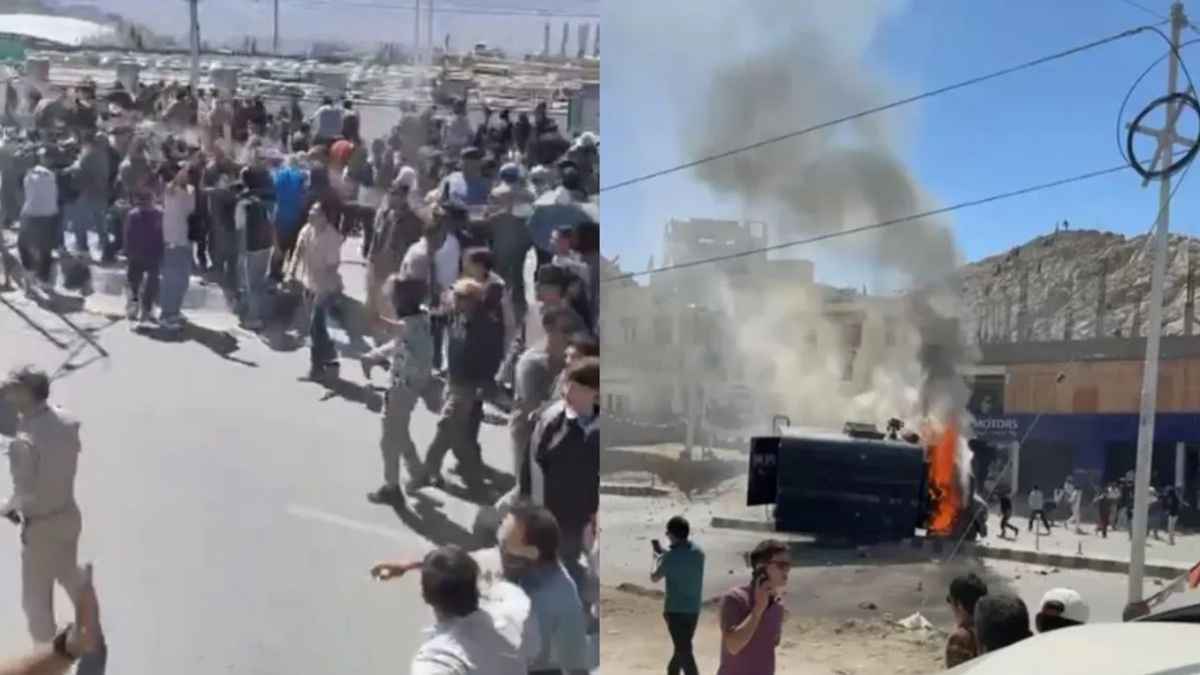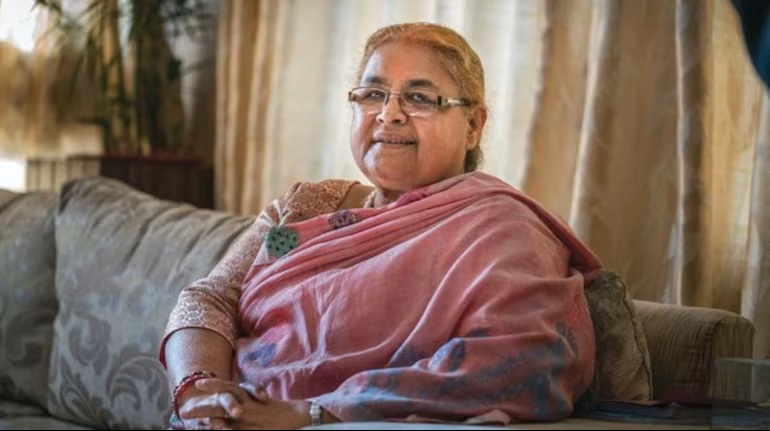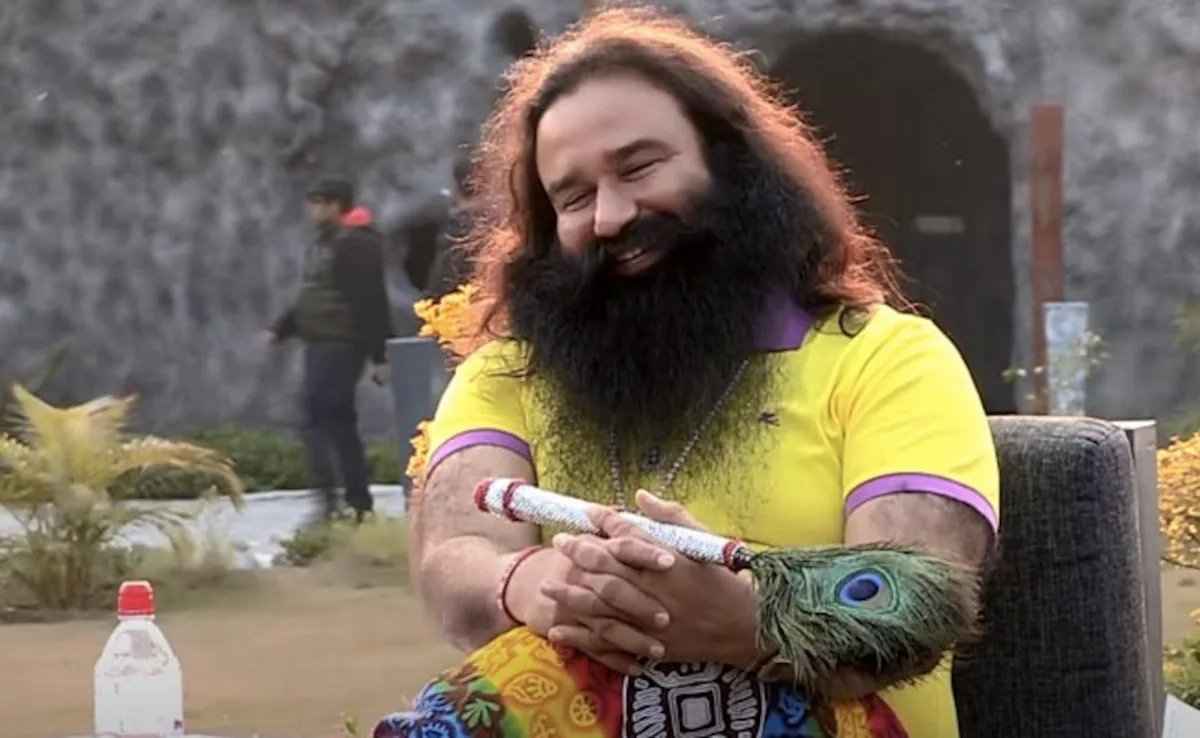MHA Alleges “Arab Spring”-Style Call Provoked Mob Attack; 4 Dead, 70 Injured in Clashes
The Ministry of Home Affairs (MHA) has accused Ladakhi environmentalist and activist Sonam Wangchuk of instigating the violent protests in Leh that left four people dead and over 70 injured, including 50 security personnel.
The Centre said that Wangchuk’s provocative remarks referencing the Arab Spring and Nepal’s Gen Z protests misled young protesters and deliberately escalated tensions despite upcoming talks with the government.
Key Developments:
- Sonam Wangchuk allegedly provoked violence through speeches referencing Arab Spring and Nepal’s youth protests.
- Protesters set fire to the BJP office and the Leh Hill Council Assembly hall.
- CRPF and police personnel attacked, with a vehicle nearly set ablaze.
- Wangchuk called off his hunger strike and urged peace after violence erupted.
- Centre blames “personal ambitions” and “narrow politics” for derailing dialogue.
- Scheduled talks with Centre on October 6, with efforts to advance meetings to September 25-26.
MHA: “Wangchuk Misled Youth, Provoked Mob Attack”
In a strongly worded statement, the Ministry said:
“Despite several appeals from leaders to call off the hunger strike, Sonam Wangchuk continued and misled the public with references to an Arab Spring-style uprising and Nepal’s Gen Z protests.”
The Centre claimed the mob left the protest venue and went on a rampage, targeting a political party office and government property, allegedly under the influence of Wangchuk’s words.
“Sinister Political Plot” – Govt Sources
Government sources added:
- The unrest was deliberately engineered, not spontaneous.
- Ladakhi youth were “caught in a sinister plot” for personal and political gain.
- Congress leaders also made incendiary statements, allegedly encouraging violence.
Wangchuk Responds: “Saddest Day for Ladakh”
As the situation worsened, Wangchuk made a public appeal:
“This is the saddest day for Ladakh. I urge our youth to stop the violence immediately… We do not want instability in Ladakh or India.”
He added that the peaceful movement had been derailed and ended his 15-day hunger strike:
“The goal of the fast is lost if our youth lose their lives. We must return to peaceful dialogue.”
Talks Were Already Lined Up – Centre
The Centre expressed surprise at the violence, stating that talks with the Apex Body of Leh (ABL) and Kargil Democratic Alliance (KDA) were already scheduled:
- High-powered committee (HPC) meeting set for October 6.
- Proposals to advance talks to September 25–26 were under consideration.
- The Centre claims it has shown consistent willingness to engage.
Violence Despite Dialogue Progress
According to MHA, the HPC process had already delivered:
- Reservation for STs increased from 45% to 84%
- One-third reservation for women in councils
- Bhoti and Purgi recognized as official languages
- Recruitment to 1,800 posts initiated
“Some politically motivated individuals unhappy with these developments are trying to derail the process,” MHA added.
Background: Why Ladakh Is Protesting
Residents of Ladakh have been demanding:
- Statehood for Ladakh
- Sixth Schedule protections under the Constitution
- Autonomy for tribal governance, similar to Northeast states
These demands are being jointly pushed by the Apex Body of Leh and the Kargil Democratic Alliance, who have led a series of peaceful protests and hunger strikes for over four years.
What Is the Sixth Schedule?
The Sixth Schedule of the Indian Constitution provides:
- Autonomous governance for tribal populations
- Control over land, jobs, and local resources
- Special powers for Presidents, Governors, and local councils
Currently applied in four northeast states — Assam, Meghalaya, Tripura, and Mizoram — activists want similar protection for Ladakh.
Current Situation in Leh
- Leh remains under curfew after the violent unrest.
- 70+ injured, including security personnel.
- Appeals on social media for blood donations.
- Local leaders urging restraint and return to peace.



